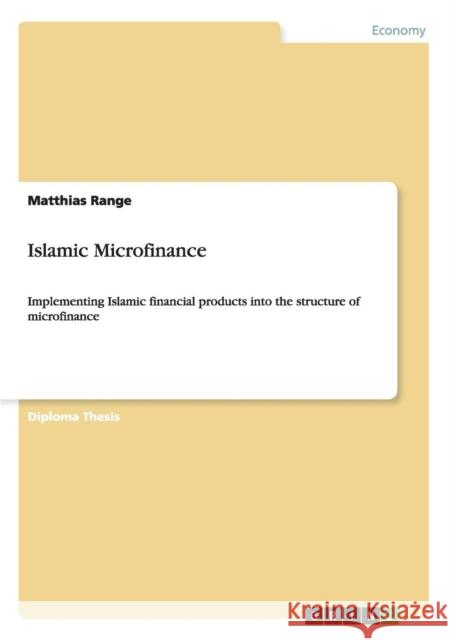Islamic Microfinance: Implementing Islamic financial products into the structure of microfinance » książka
Islamic Microfinance: Implementing Islamic financial products into the structure of microfinance
ISBN-13: 9783656414933 / Angielski / Miękka / 2013 / 96 str.
Diploma Thesis from the year 2004 in the subject Economics - Finance, grade: 1,3, RWTH Aachen University (International technical and economical Cooperation), language: English, abstract: The literature discussing microfinance topics like sustainability, outreach and improvement of methods as well as the role of the governments in terms of interference, supervision and regulation is getting more differentiated and substantiated. Despite this increasing interest, one aspect of microfinance has been largely neglected both scientifically and in its application: Islamic Microfinance. In this paper I will discuss, if the principles of the Shari'ah (the Islamic law) are not somewhat compatible with the needs and obstacles of microfinance, where stewardship is to be shared and trust crucial. Further, I will discuss in detail if the prohibition of Riba is a serious, insolvable obstacle and if it is really more expensive for microfinance institutes to provide Muslims with financial services. By comparing traditional instruments of microfinance with new, transferred instruments borrowed from Islamic banking, I will try to explain - on the bases of the Islamic culture - why people are surprised about the neglect of Islamic Microfinance. The hypotheses are as follows - The implementation of Islamic financial products causes too high risks for microfinance institutes. The restriction of involving 'risk' in financial contracts for both parties by the Islam is binding. Therefore, market risks and moral hazards, make a save and steady return for the MFI not possible. - The higher efforts of Islamic Microfinance are too much for the already weak organisation structures of MFIs. MFIs have to avoid or at least decrease market risks and moral hazards. Thus, higher efforts need to be invested by the MFIs due to the increased dependency on the success of the pre-financed projects. - The complexity of Islamic financial products compared to convenient credit contracts leads to difficulti











